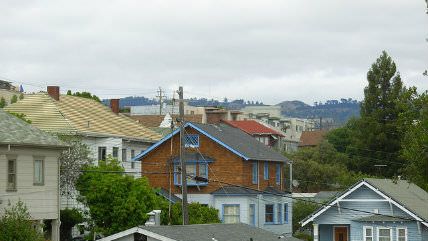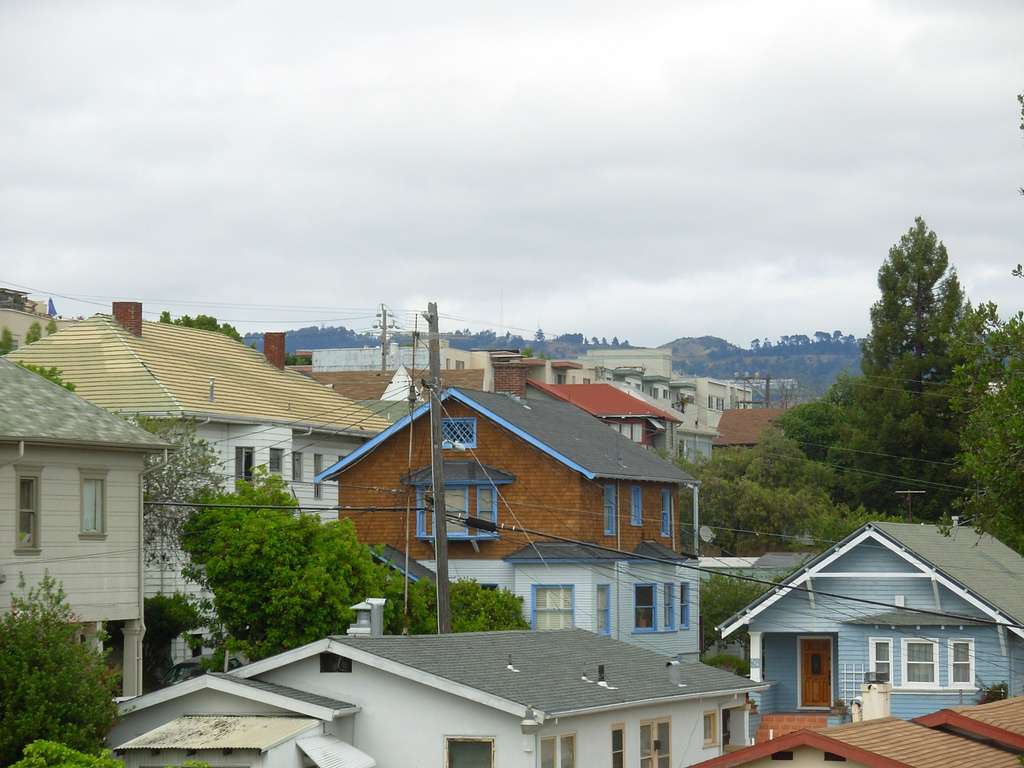Oakland City Officials Can Now Require Landlords to Evict Sex Workers


Landlords in Oakland, California, will now be required to evict sex workers from their properties if the city asks them to. Under an ordinance passed by the Oakland City Council Tuesday, city officials have authority to force suspected sex workers—along with anyone engaged in certain "nuisance" activities—from their homes, even if these individuals haven't been convicted of any crimes. The ordinance also allows landlords to request that the city carry out evictions of these individuals. It passed the Council by unanimous vote.
The bill was overshadowed locally by another ordinance passed that night, the Tenant Protection Ordinance. Designed to prevent landlords from harassing rent-controlled tenants, this statute bans landlords from failing to do repairs, taking away amenities, or intruding on a tenant's privacy in an attempt to force them out—things that even the ordinance's sponsor acknowledges are already illegal under state law.
"Yet the amended Nuisance Eviction Ordinance is a big deal," writes Kriston Capps at CityLab. It expands the boundaries of an already-controversial law passed in 2004, which granted city officials authority to evict tenants arrested on drugs or weapons possession charges. Under the updated ordinance, they can also pursue the eviction of "nuisance" tenants engaged in prostitution, solicitation, pimping, pandering, illegal ammunitions possession, or illegal gambling. From Capps:
"It's horrible. It's unconscionable," said Anne Omura, then a managing attorney at Oakland's Eviction Defense Center, in a 2004 interview with the Los Angeles Times. "We feel that it just really tramples on the rights of tenants and doesn't give them a lot of due process."
(…) While the original NEO invests the City Administrator with the power to pursue evictions, the new amendment—which was penned by City Attorney Barbara Parker—also grants extra-judicial eviction powers to the office of the City Attorney.
The amended bill further stipulates that a landlord who fears for his or her safety may ask the newly invested City Attorney to carry out the eviction (on the landlord's dime). Finally, the city can go after the landlord for not taking action against a tenant "after being apprised by the City that the tenant has engaged in illegal activity."
"Landlords already have the power by state law and by local ordinance to remedy conduct that the ordinance describes as public nuisance," says Marc Janowitz, supervising attorney at the East Bay Community Law Center. "The addition of the city's muscle exaggerates an already extreme imbalance in power between landlords and tenants generally."
As if all of this wasn't crazy coercive enough, the new Oakland ordinance leaves determining who is a sex worker, drug dealer, or illegal bookie up to city officials' and landlords' discretion. An individual need not be convicted or even charged with prostitution to trigger eviction; the text of the ordinance merely mentions "engaging in" the activity. (The activity also needn't take place on the property, only be "connected" to or "associated with" it.)
"The bill does not describe what burden of proof the city needs to meet in order to 'apprise' a landlord that a tenant has 'engaged' in said illegal activity, Capps notes. "Nor does the bill stipulate how or whether this evidence (presuming some is required) is to be shared with the tenant."
Essentially, the city can now force anyone it deems undesirable out of town on the flimsiest of pretences. Cops can't make a prostitution charge stick? Have the city evict her! Can't meet the burden of proof that someone's selling drugs? Have the city evict them! City officials say it's no big deal because residents can contest the eviction in court. But if we look at the people most suspected of drug and sex-work related activity, it's usually not wealthy, legally-savvy individuals who have the resources or werewithal to fight it.
According to Oakland journalist Susie Cagle, the city is unlikely to show major qualms about using the new ordinance against sex workers. "This is a continuation of a theme," Cagle tweeted Tuesday. "City attorney Parker has made cracking down on sex work and 'trafficking' central since taking office,"
In explaining the need for the law, City Attorney Parker wrote:
Not only does illegal nuisance activity detract from the beauty and livability of our city, but it breeds disrespect for our neighborhoods and communities, encourages additional nuisance activity, and disregard the law in general. Furthermore, individuals engaging in off-premises illegal activities within a close proximity to their residences are highly likely to use their residences to further and conceal their illegal activity. Additionally, gambling, prostitution, pimping, pandering, and solicitation negatively impacts Oakland's business environment.
In September, California renewed a state pilot-program that allows Los Angeles, Long Beach, Sacramento, and Oakland to evict residents arrested (not necessarily convicted) for illegal firearms or ammunition possession, and there's evidence that these cities were told, indirectly, to "use it or lose it" when it comes to the power. Read Capps' whole piece for more detailed info on that craziness.


Show Comments (62)